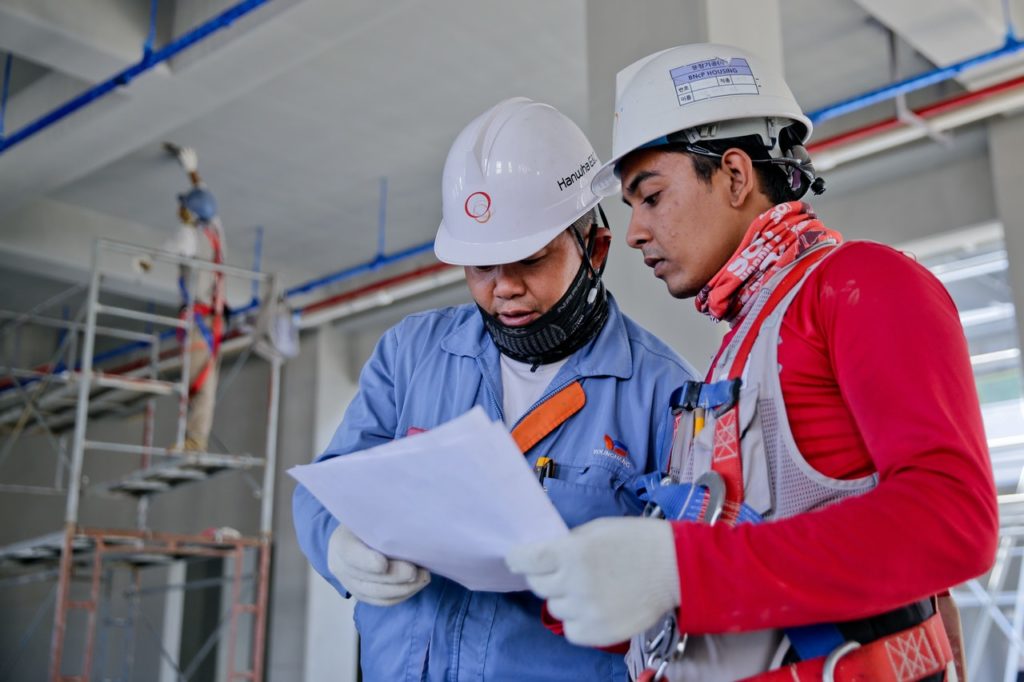The pandemic proved to be one of the most challenging times that altered all sectors of every industry. Even construction industry members took the hit after lockdowns and restrictions. They needed to find ways to try to fulfill projects and deliveries. This is while battling supply chain interruptions, complying with new health and safety protocols, and various suspensions of numerous projects.
Construction industry members had to find ways to quickly adapt to the new normal. Luckily, contractors are often resilient to unexpected changes. Since they are used to the demanding nature of their work, they were fast enough to make the necessary changes and successfully navigate their way through the pandemic.
Below are some ways the coronavirus crisis helped shape the future of construction industries.
Reconsidering Health and Safety Protocols
Occupational health and safety protocols already exist even before the crisis. Companies are mandated to commit to workplace health and safety as a way of protecting employees. Failure to commit can lead to severe financial and legal losses.
Due to the pandemic, additional health and safety measures were added to the usual protocols. Construction industry members now have to commit to social distancing, proper sneezing, and coughing etiquette, and regular handwashing, to name a few. Everyone has to be properly trained to ensure everyone knows how to protect themselves better.
For one, construction workers should know the basics of COVID-19. Employers should inform their employees of how the virus spreads, how to slow the spread, and what to do in case of potential exposure. Employers, on the other hand, need to have an effective Covid-19 response plan in place.
Funding Business Needs With a Limited Budget
Contractors always have expenses to pay and projects to fulfill. They may have enough budget to work with before the crisis. But because of the pandemic, the additional expenses and numerous challenges led to a series of budget cuts.
For some contractors, their lack of budget made it tricky to purchase brand new construction equipment. What they did is rent their equipment needs instead until they save enough funds to buy what they need. This helped them get access to the equipment they need while lowering their costs.
A crawler crane rental, for instance, is a much cheaper choice for construction companies who haven’t got enough funds to buy their own crane. They get to use their initial funds to buy other materials they need or purchase the machines they have an actual and regular need for. They can also use the extra budget to pay their employees who badly needs to keep their job mid-crisis.
The Need to Better Innovation and Diversification
Construction industry members need to learn how they can start diversifying their business models. As certain demands for some sectors continue to decline, it becomes a must that they start embracing other income streams. This can include the reduced number of clients in the travel, hospitality, and retail sector.
Diversification will enable contractors to take on projects in other sectors. This will give them additional streams of income and start tapping on a larger market. It also helps them widen their network and even start working with other professionals who can be assets in the nearby future.

We also live in an innovation-driven world and adapting is one way to stay relevant. Consumers are demanding all industries to shift to greener and more sustainable practices. They want more eco-friendly products that are long-lasting and sustainable.
The need for energy-efficient, cost-efficient, and error-free technologies is becoming more prominent in the industry. This shows that the pandemic did not only accelerate the need for better health and safety standards. It also demanded that businesses in the construction industry embrace new innovations that many have been taking for granted for many years now.
Celebrate Local Partnerships
Before, most businesses would buy from overseas suppliers. They prefer international stocks since these tend to be cheaper while still meeting their quality requirements and deadlines. But then, the lockdowns and chain supply interruptions, businesses need to think of other ways to reach their tight deadlines without compromising quality.
This lead to some company’s decision to work with local vendors. The pandemic paved way for local businesses with related industries to work together and achieve their common goal. That is to provide timely deliveries of high-quality tools, materials, and equipment they need.
Now, more contractors are partnering with local suppliers and other local businesses. Local partnerships promote community building and help local businesses thrive. This is also one step in embracing more sustainable business habits.
In a nutshell, more local partnerships were formed and businesses embraced better innovation and diversification during the crisis. They became more in-tune with their finances and employee satisfaction increased thanks to the improved health and safety protocols. This list only goes to show just how powerful the pandemic’s impact is on construction industries. Since the only way to thrive is to adapt to the new normal, construction industry workers are doing just that to cope.

